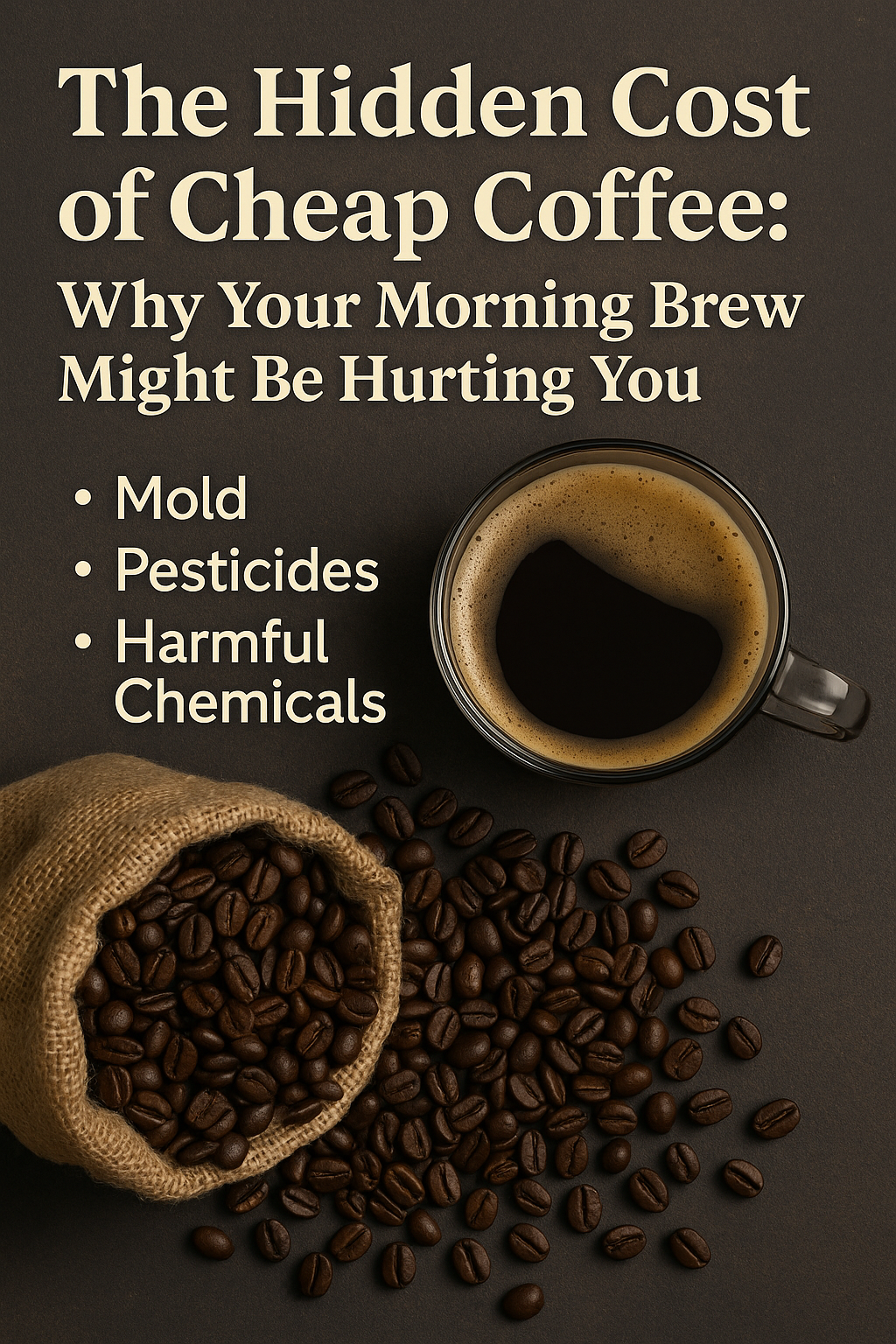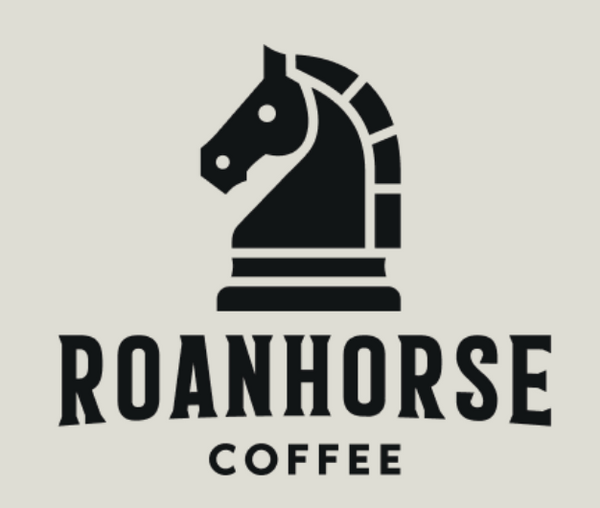
The Hidden Cost of Cheap Coffee: Why Your Morning Brew Might Be Hurting You
Coffee is a daily ritual for millions—but most people have no idea what they’re really drinking.
Coffee is one of the only psychoactive drugs that we casually sip in the morning, at work, during long drives, and even after dinner. It's legal, widely consumed, and for many of us, essential. But here’s the truth: the average cup of supermarket coffee is doing more harm than good.
Let’s break it down.
1. Most Cheap Coffee Is Full of Mold and Pesticides
Low-quality coffee—especially mass-produced, non-organic beans—is often contaminated with mold (mycotoxins), pesticides, and chemical residues. Why? Because many of the cheapest beans come from bulk batches that are improperly stored, grown with chemical-intensive farming methods, and barely tested for toxins.
Moldy coffee can lead to:
-
Brain fog and fatigue
-
Inflammation and gut issues
-
Long-term exposure to carcinogens
Combine that with a cocktail of pesticides, and your “energy boost” could be quietly undermining your health.
2. Coffee Shouldn't Be That Cheap
Coffee is a labor-intensive crop. It grows in specific climates, requires harvesting by hand in many cases, and must be processed, dried, roasted, and shipped.
So how is a giant tub of ground coffee $5 at the store?
Corners are being cut. Bad beans are used. Farmers are underpaid. Roasting is often done in bulk with no attention to freshness, origin, or ethics. Quality—and your health—is sacrificed for cost.
3. Your Body Deserves Better
If you're consuming coffee daily, quality matters.
High-quality, consciously sourced coffee:
-
Is free from mold and harmful chemicals
-
Has a cleaner, more complex flavor
-
Supports small farmers and sustainable agriculture
-
Leaves you feeling focused—not jittery and anxious
4. What to Look for in Clean Coffee
Not all coffee is created equal. Here’s what to seek out:
-
Organic or third-party tested: Ensures low-to-no mold or pesticide residue.
-
Single origin or traceable sources: Know where your coffee comes from.
-
Freshly roasted: Look for roast dates, not expiration dates.
-
Small-batch roasters: Typically prioritize quality over quantity.
5. Coffee Is a Drug—Drink the Good Kind
Let’s be honest: we’re not giving up coffee. But if it's something you're using to wake up, power through, or think clearly, why settle for the lowest quality possible?
If you care about what goes into your body—your coffee should be no different.
At [Your Brand Name], we believe clean coffee should be the standard, not the exception. Try our mold-free, ethically sourced, incredibly smooth roasts and taste the difference. Your brain and body will thank you.
Call to Action:
👉 Explore our specialty-grade coffees [link to shop page]
